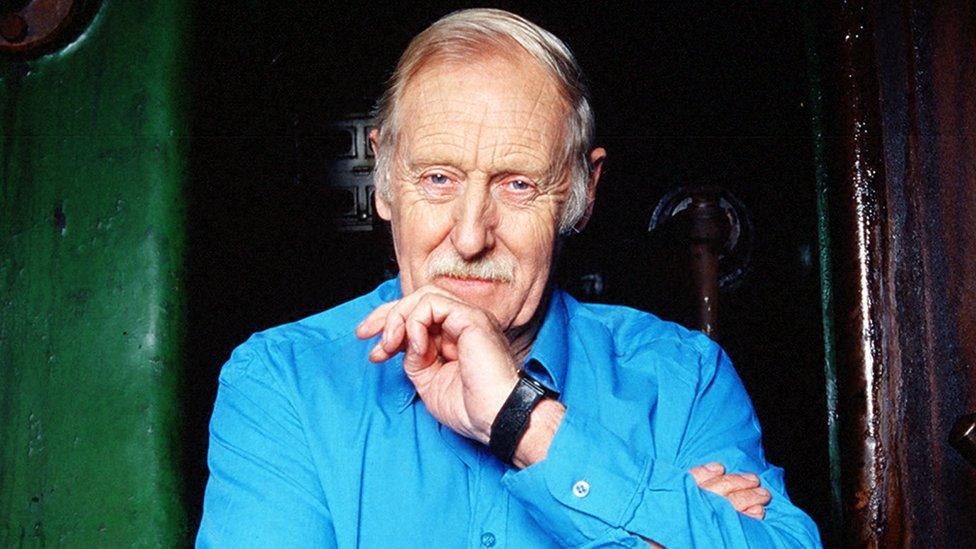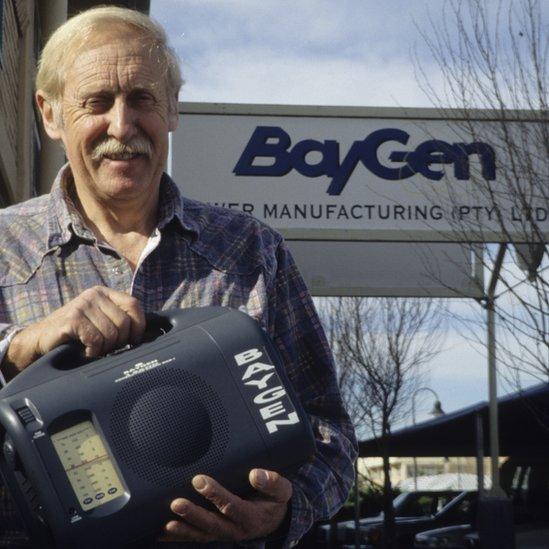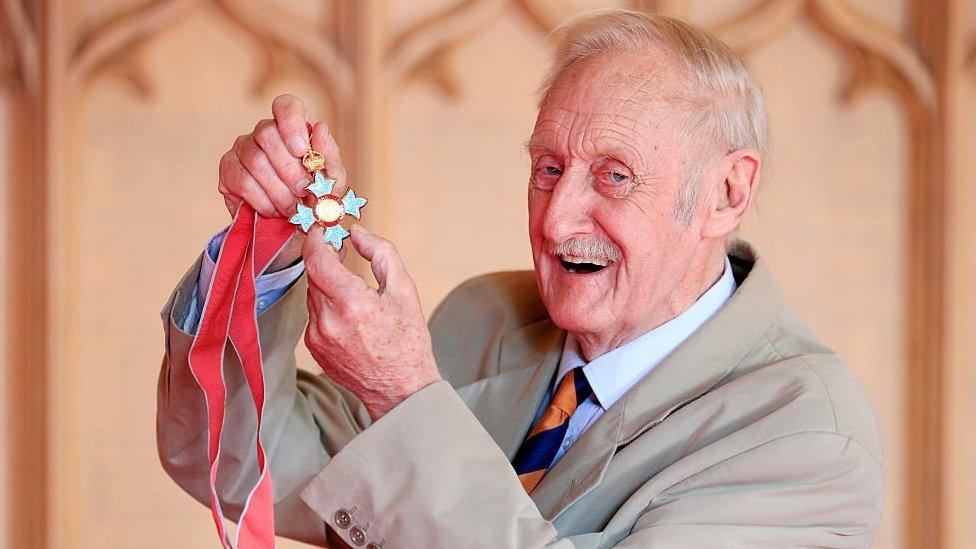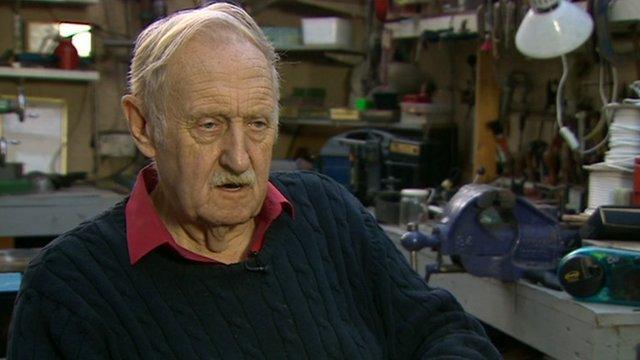Trevor Baylis: Wind-up radio inventor dies aged 80
- Published

Trevor Baylis campaigned to make theft of intellectual property a white-collar crime
The inventor of the wind-up radio, Trevor Baylis, has died aged 80, the manager of his company has confirmed.
David Bunting said Mr Baylis from Twickenham, south-west London, died on Monday of natural causes after a long illness.
Mr Baylis invented the Baygen clockwork radio in 1991.
He was appointed CBE in 2015 after campaigning to make theft of intellectual property a white-collar crime.
He said chatting with the Queen at the ceremony was "like catching up with an old mate".
Mr Baylis had also worked as a film and TV stuntman and an aquatic showman.
He had been seriously debilitated, having suffered from Crohn's disease, Mr Bunting said.

Mr Baylis invented the Baygen clockwork radio in 1991
Mr Baylis was previously awarded the OBE for his radio, which he designed after seeing a documentary about Aids in Africa that suggested educational radio programmes could help tackle the spread of the virus.
He had said he received almost none of the profits from the invention because people took advantage of patent laws to sell other versions of it.
In later life Mr Baylis advised other inventors on developing their ideas, and campaigned against theft of intellectual property.
Mr Bunting, who runs Trevor Baylis Brands, said Mr Baylis had no living relatives.

Analysis - Prof Will Stewart, The Institution of Engineering and Technology

Trevor Baylis received his CBE at Windsor Castle in March 2015
Trevor Baylis' wind-up radios could work anywhere.
They were sold in the UK, but we weren't the intended market.
What made them important was that they were designed for a Third-World application.
They were aimed at Africa and places where mains electric power and access to batteries was a problem.
The original one had a clockwork-like mechanism with a very ingenious double-spiral spring. It wound off one pulley onto another and would run for relatively short periods of time - about 15 minutes.
Later versions lasted longer and were powered by rechargeable batteries. They were charged up with a crankable dynamo or could be plugged into the mains or solar energy panels, if available.
Nelson Mandela would say fine things about them, and they won Trevor Baylis various prizes.
But while the Baygens certainly sold and were used, their biggest impact was probably that they had been made by a First World engineer who cared about the Third World.
There are now all sorts of inventions aimed at the developing world and it's a relatively common thing for young engineers to dedicate themselves to, but that didn't always used to be the case.
I think Trevor Baylis deserves considerable credit for having kicked that off and for having served as an inspiration to many other young engineers and inventors.
- Published6 March 2015
